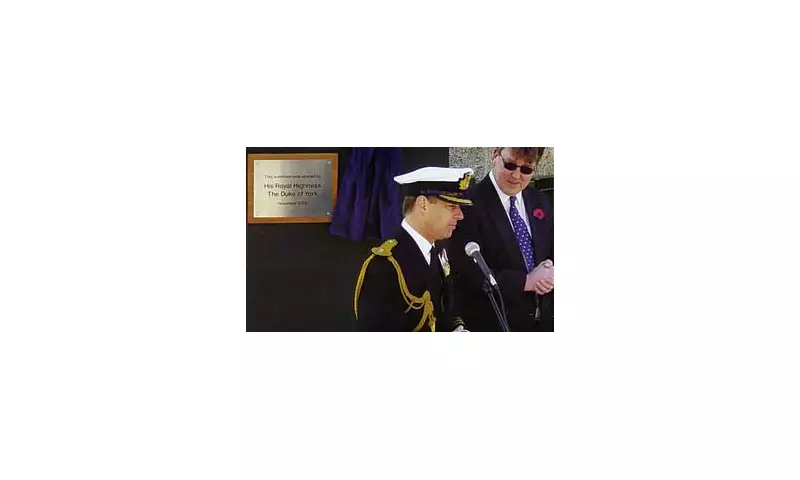
Four commemorative plaques on the Falkland Islands that were unveiled by the disgraced former Prince Andrew have been removed in the wake of his dramatic fall from royal favour. The decision follows his brother King Charles stripping him of all military affiliations and royal patronages earlier this year.
The Plaque Removal Operation
The most significant plaque was located at the entrance to RAF Mount Pleasant, the £300 million airbase that Andrew had officially opened in 1985, three years after he served as a helicopter pilot during the 1982 conflict with Argentina. At the original unveiling ceremony, he was greeted by thousands of cheering residents, many waving signs proclaiming 'British forever'.
According to the Ministry of Defence, which operates the base, the removal was conducted in line with His Majesty's intent regarding the process to remove the style, titles and honours of Andrew Mountbatten Windsor. This formal statement confirms the coordinated nature of the plaque removals across the British overseas territory.
Educational and Conservation Links Severed
Further plaques connected to the Duke of York have also disappeared from public view. At the Infant Junior School in Stanley, the capital, where Andrew opened several buildings in 2002, a representative confirmed that the plaque has been taken down and the Duke of York is no longer connected to our school.
Similarly, a plaque Andrew unveiled for the Falklands Conservation trust on New Island has been removed. A staff member told reporters that he was removed as patron and the plaque at the field centre has gone, indicating a comprehensive severing of his former associations with conservation efforts in the archipelago.
Broader Fallout from Epstein Connections
The plaque removals represent the physical manifestation of Andrew's removal from public life, which accelerated after he reached an out-of-court settlement with accuser Virginia Giuffre in 2022. This led to the removal of another plaque at King Edward Memorial Hospital in Stanley that same year.
Recent revelations have further damaged the former Duke's reputation, including email exchanges from 2010 showing that Jeffrey Epstein described Andrew as 'great fun' to business associate Boris Nikolic. These communications occurred just six months after Epstein's release from jail, where he had been convicted of procuring a minor for prostitution.
At the time of the Davos meeting, Andrew was serving as UK special representative for international trade and investment, a role from which he stepped down in 2011 following growing controversy over his association with the convicted sex offender.





